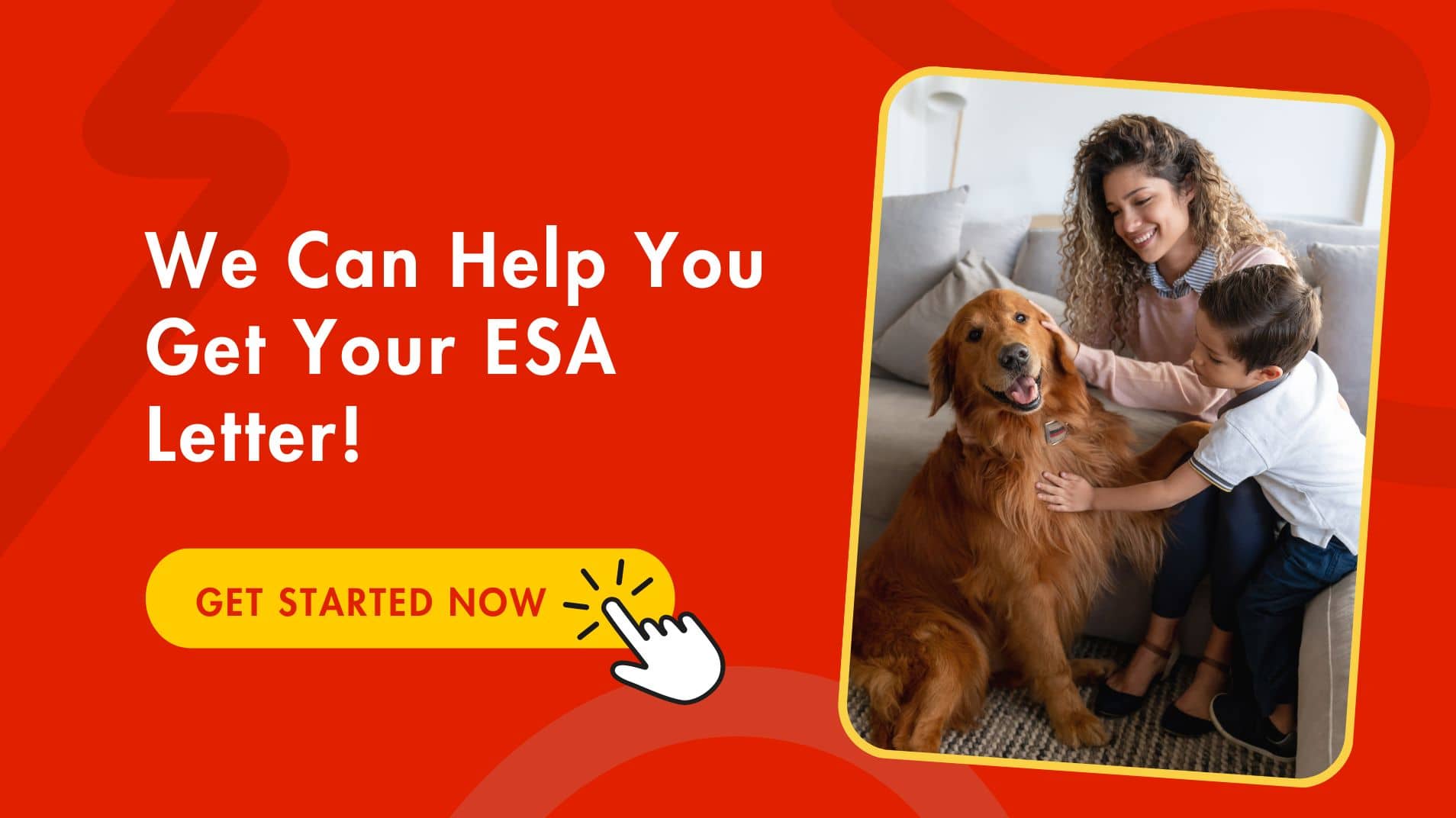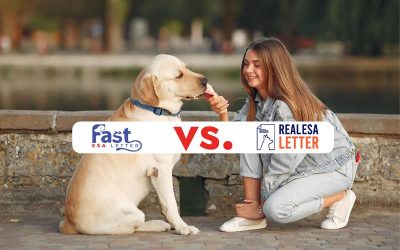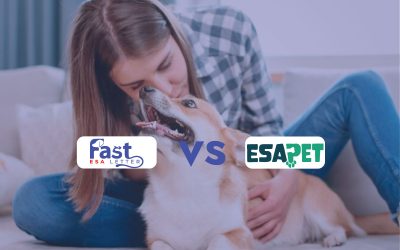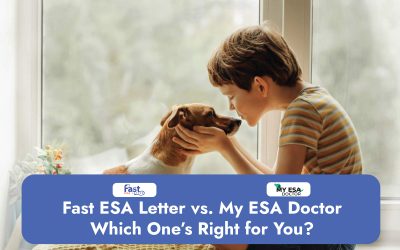Learn How an Emotional Support Dog Can Help With Social Anxiety.

Social anxiety disorder goes beyond typical nervousness. It’s the constant fear of being judged or embarrassed in everyday interactions, whether it’s answering a question, shopping, or using public spaces. These challenges can make daily life overwhelming.
In these moments, having someone to talk to and offer unconditional support can make all the difference. That’s where an Emotional Support Dog (ESD) comes in. More than just a pet, an ESD provides non-judgmental companionship, helping to reduce stress and boost motivation. Ready to explore how emotional support dogs for anxiety can make a difference? Keep reading!
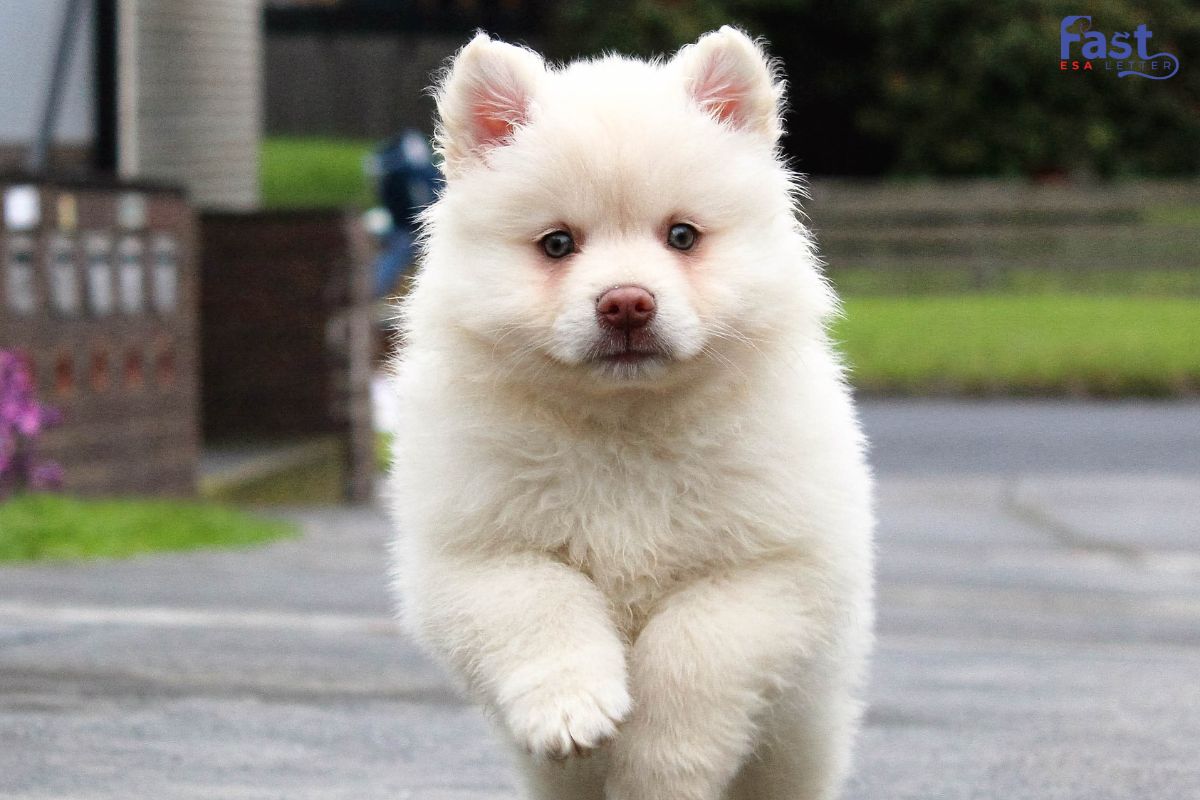
What Is Social Anxiety and How Does It Affect People?
How an Emotional Support Dog Can Help You Manage Social Anxiety?
Anxiety in social situations is more than just feeling nervous. It’s a deep fear of being judged in everyday tasks like shopping, working, or interacting with others. ESDs offer companionship and comfort, helping ease the weight of these stressful moments. Here are the top 7 ways how ESDs can help with anxiety:
- Reduce Work-Related Stress:
Emotional support dogs help with anxiety in the workplace by lowering stress levels and increasing employee satisfaction. A dog’s presence creates a more relaxed work environment, helping you cope better with anxiety.
- Boost Productivity:
A dog can increase your confidence by offering emotional support, making it easier to focus and manage anxiety. Their calming presence helps you maintain a clearer mind and become more productive in your daily tasks.
- Improve Mental Health:
The emotional support dogs provide invaluable support for anxiety. Their companionship can stabilize mental health, lifting your spirits and alleviating symptoms of anxiety and depression.
- Encourage Physical Activity:
Emotional support animals for anxiety require regular walks and play, which encourages you to stay active. Physical activity has been proven to improve both physical and mental health, helping you develop a healthy routine.
- Create a Sense of Togetherness:
Having a dog can reduce feelings of isolation by encouraging social interactions. Support dogs for anxiety naturally attract attention, making it easier to engage with others, whether during walks, visits to the park, or at pet-friendly events.
- Offer Non-Judgmental Support:
One of the most significant benefits of emotional support dogs is their unconditional love. They provide a sense of acceptance, helping reduce the anxiety that stems from fear of judgment.
- Promote Mindfulness and Calm:
Spending time with your dog can help you stay grounded. It offers a calming effect that reduces anxious thoughts. Engaging in simple activities with your dog, such as petting or playing, encourages mindfulness and helps you focus on the present moment rather than worrying about the future.
Are There Scientific Studies About It Or Just Theory And Experiments?
How to Get an Emotional Support Dog for Social Anxiety?
- Finding the Right Professional: Start by finding an LMHP (licensed mental health professional), such as a psychologist, psychiatrist, or licensed therapist. Once finalized, book an appointment with them.
- Assessment Process: During the consultation, be prepared to discuss your symptoms, treatment history, and how social anxiety affects your daily life. The professional may conduct an evaluation using standard psychological assessments to better understand your needs.
- Get Your Emotional Support Dog Letter: If you are diagnosed with a qualifying condition, your healthcare provider can recommend an emotional support dog as part of your treatment plan.
What Are The Top 5 Best Emotional Support Dogs for Anxiety?
1. Bichon Frisé
- Temperament: Affectionate, playful, and cheerful. Bichon Frisés are known for their friendly disposition and ability to bond closely with their owners.
- Size: Small, weighing between 12-18 pounds.
- Coat: Soft, curly, and hypoallergenic, requiring regular grooming to maintain its appearance and prevent matting.
- Unique Traits: Bichon Frisés are social dogs that thrive on companionship. Their playful nature can help distract owners from anxiety and provide comfort through their affectionate behavior.
2. Cavalier King Charles Spaniel
- Temperament: Gentle, affectionate, and adaptable. These dogs are known for their loving nature and ability to bond deeply with their owners.
- Size: Small, weighing between 13-18 pounds.
- Coat: Silky and medium-length with a slight wave. They come in various color combinations and require regular grooming to avoid tangles.
- Unique Traits: Cavalier King Charles Spaniels are known for their “smiling” faces and gentle demeanor. They are excellent lap dogs, making them perfect for providing comfort during anxiety episodes.
3. Pembroke Welsh Corgi
- Temperament: Friendly, intelligent, and alert. Corgis are known for their playful personalities and strong desire to be near their owners.
- Size: Small to medium, weighing 24-30 pounds.
- Coat: Thick and medium-length, with a double coat that sheds. Regular grooming is necessary, especially during shedding seasons.
- Unique Traits: Pembroke Welsh Corgis are friendly and outgoing, making them great companions. Their playful nature can help lift spirits and reduce anxiety through interactive play.
4. Vizsla
- Temperament: Loyal, energetic, and affectionate. Vizslas are known for their strong bond with their owners and their need for companionship.
- Size: Medium, weighing between 45-65 pounds.
- Coat: Short, smooth, and sleek. They are low-shedding and require minimal grooming.
- Unique Traits: Vizslas are often called “velcro dogs” because they love being close to their owners. Their affectionate nature and high energy levels encourage physical activity, which can benefit mental health.
5. Poodle (Standard Poodle)
- Temperament: Intelligent, alert, and highly trainable. Poodles are known for their versatility and adaptability to different living situations.
- Size: Standard Poodles weigh between 40-70 pounds.
- Coat: Curly and hypoallergenic, requiring regular grooming to prevent matting.
- Unique Traits: Standard Poodles are highly intelligent and excel in training, making them great for therapy work. Their gentle demeanor and love for human companionship make them excellent emotional support dogs for anxiety.
What Are The Limitations of an Emotional Support Dog in Treating Social Anxiety?
1. Not a Replacement For Therapy
2. Handling Severe Anxiety
3. Limited Access Areas
How Do You Train an Emotional Support Dog for Anxiety?
Emotional support dogs for anxiety do not need professional training to help with your anxiety. Their presence, emotional support, and unconditional love can be enough for your health conditions. However, you can train them in basic obedience to make your life easier and to request access to public places.
Start with fundamental commands such as come, sit, and stay. These commands ensure that your dog responds to your cues, which can be crucial in managing anxiety in public settings. Basic training helps establish a communication system between you and your support dog for anxiety, making interactions smoother and more reassuring.
Bottom Line
Frequently Asked Questions (FAQs)
Can Dogs Help With Anxiety?
Can I Get An Emotional Support Animal For Anxiety?
Do I Need A Prescription Or Recommendation For An Anxiety Emotional Support Dog?
Yes, a licensed mental health professional must diagnose you with a mental health condition and recommend a support dog for anxiety through a written prescription or an ESA letter.
Can I Take My Emotional Support Dog To Work?
Can Any Dog Be An Emotional Support Dog?
How Do I Find A Therapist Who Supports Emotional Support Dogs?
Post Author
Prince Sharma
Related Articles
Fast ESA Letter vs. Real ESA Letter: Which ESA Service is Right for You?
Fast ESA Letter vs. Real ESA Letter: Which ESA Service is Right for You?Both Fast ESA Letter and Real ESA Letter provide ESA and PSD letters, but Fast ESA Letter truly stands out for its authenticity, trusted customer base, dedicated support, and...
Fast ESA Letter vs ESA Pet: Which Service Should You Trust?
Fast ESA Letter vs ESA Pet: Which Service Should You Trust?Both Fast ESA Letter and ESA Pet connect you with licensed professionals, but only one consistently delivers on speed, pricing, and support. If you want an ESA letter without delays, hidden...
Fast ESA Letter vs. My ESA Doctor: Which ESA Service is Right for You?
Fast ESA Letter vs. My ESA Doctor: Which ESA Service is Right for You?Fast ESA Letter and ESA Doctors both facilitate access to licensed mental health professionals for ESA letters. Each service has its own approach, and understanding the differences...
Live Free with Your ESA!
An ESA Letter Unlocks Freedom!


